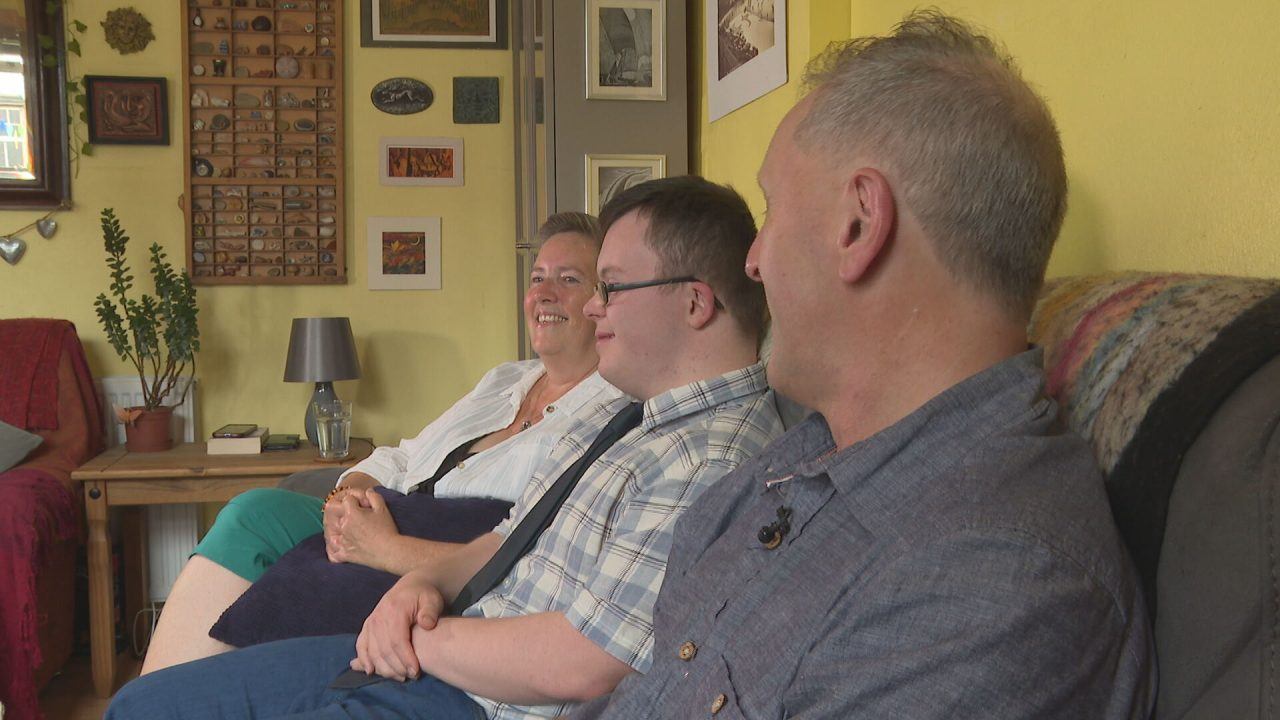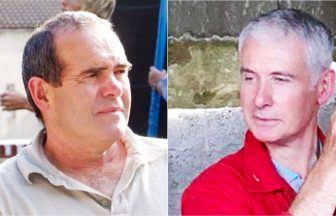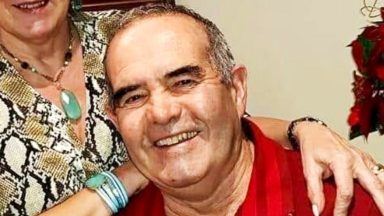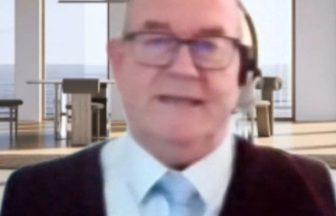Young people with Down’s syndrome are being supported to move out of their family homes on their own with the help a local charity.
The group, called Co-Housing for Independent Living (CHIL), is exploring different housing options for their kids who are ready to fly the nest.
Lisa Randall and Bob Lockhart joined the group after they began looking at housing options for their 22-year-old son Tom, who has Down’s syndrome.
Tom commutes to his work as a cleaner most days by bus and has always dreamed of getting his own place.
He said: “When I’m getting older I want to move out from this house and start a lovely good life in my own house by myself, with someone that I really love or a best mate.”
The charity is particularly focused on creating a co-housing experience where multiple people could live together as a community.
Tom’s mum Lisa said: “Just like any other young person, it’s just a natural progression that you would leave the family home. Tom’s got a girlfriend and he wants to get married.
“People with learning difficulties and Down’s syndrome in particular obviously need safe accommodation because they are still vulnerable and they need that element of community as well.”
Bob said: “So many adults with Down’s syndrome end up living in the parental home into middle age and even later. Of course, that becomes a major worry for the families as in what happens to them once the parents aren’t around or aren’t able to cope anymore.
“It’s really important that they have a wider range of options than they currently do. We have found from our research that the options available at the moment are often inadequate.”
The average life expectancy of a person with Down’s syndrome has raised by more than 30 years since the 1980s to around 60 years old – with some living much longer.
Jo Hughes, Head of Service Development at Down’s Syndrome Scotland said: “The generation of young adults now living with Down’s syndrome are most likely the first generation to outlive their parents and it’s really important for them to have a plan in place which means they have the potential to live their own lives to the full.”
CHIL is now working with Down’s Syndrome Scotland to carry out research into different housing options, particularly co-housing.
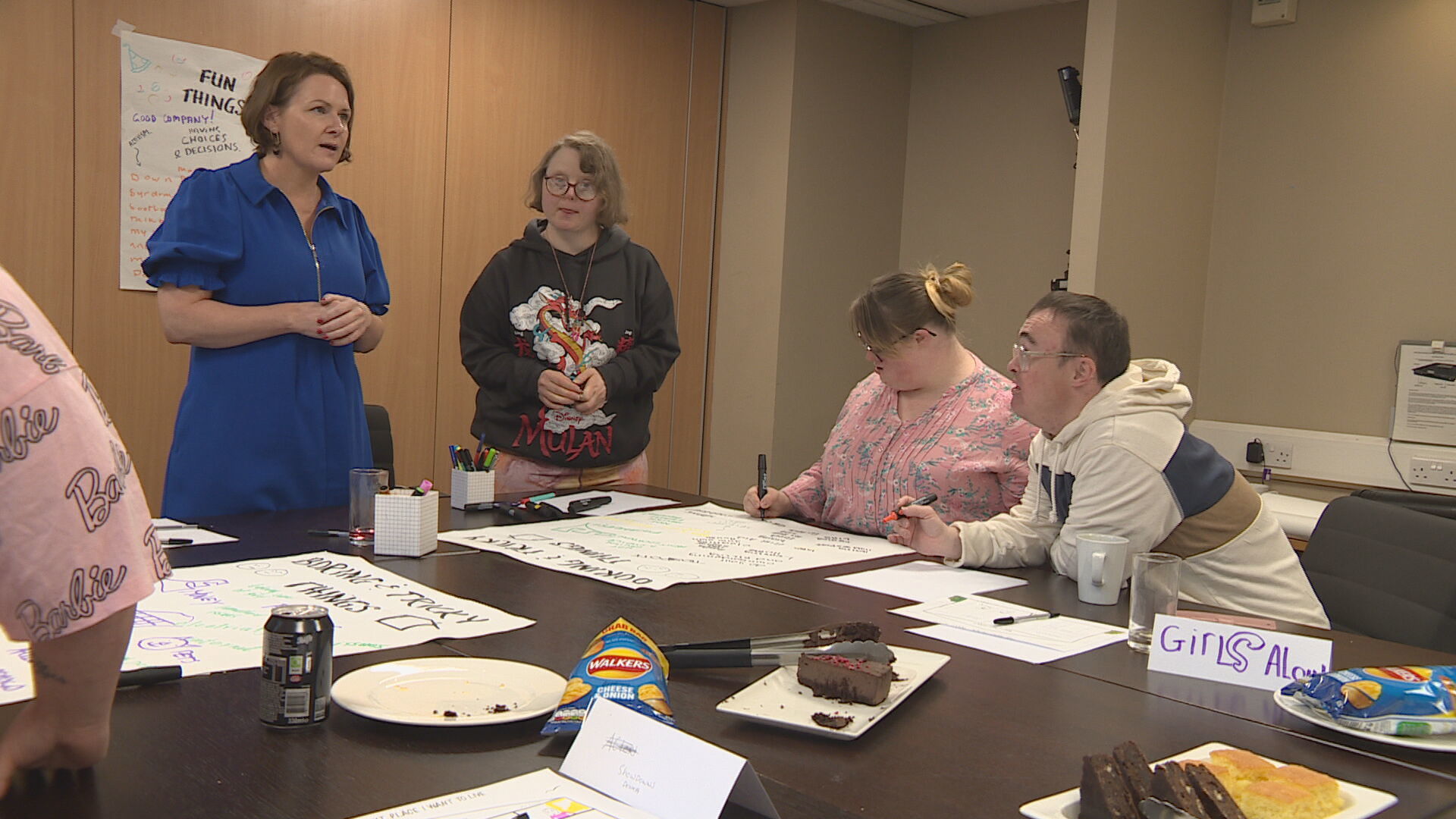 STV News
STV NewsThis includes conducting workshops with people living with the condition who have all had different experiences of living either at home or alone.
Andrew Davies, 28, currently lives at home with his parents but has been considering his options.
He said: “I’ve always wanted to move out since I was younger and I’ve always considered shared flats.”
Megan Bilsland, 32, has experience in both living with a flatmate and on her own.
She said: “Co-housing is actually the best thing to have because it would help other people. Whether they want a house by themselves, they can be really happy and have their own space.”
Fiona Dawson, 43, has lived on her own for seven years and said that getting that bit of freedom was crucial for her.
“Independence is vital to everyone with a disability, including people with Down’s syndrome. You’re giving them a chance, you’re giving them a purpose to life,” Fiona said.
Emer O’Leary, is the consultant co-ordinator for CHIL and has been hosting the workshops.
She said: “Far too often we see houses being designed and then afterwards kind of trying to shoe-horn people into houses that may not be suitable for them.
“So we think that it’s really important to get people’s opinions and their design ideas from first principles.”
Follow STV News on WhatsApp
Scan the QR code on your mobile device for all the latest news from around the country


